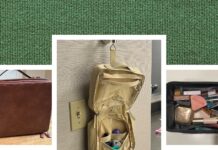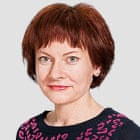Sturgeon says safest way to spend Christmas is at home, with own household
Nicola Sturgeon was challenged at FMQs about “confusing” messaging around Christmas, with UK-wide relaxations accompanied by extreme caution from the first minister and warnings from Scottish public health experts about the dangers of a subsequent third wave.
Sturgeon said that Christmas presented a “really complex situation” and that the agreed cross-UK relaxation was “a recognition of reality” that some people would feel unable to stay within the rules as they are now. She said that rather than allowing people to break those irules in a “haphazard” way, it was better to set out fresh guidance, but with default advice to stay at home.
She confirmed to MSPs that initial guidance on Christmas had been published this morning, but reiterated “the safest way to spend Christmas is in our own home, with our own household in our own local area”.
She said that there should be no more than more than 8 people over the age of 12 in any festive bubble, and it should include only one extended household. The advice is also that those wanting to visit someone in a care home over Christmas should not form a festive bubble.
She took FMQs as she announced a further 1,225 positive cases overnight, with 1,125 people in hospital with the virus, 31 fewer than yesterday, 90 in intensive care, six more than yesterday, and a further 51 deaths.
She said that Scotland’s R number estimate is expected to remain slightly below 1.
Updated
Schools who used reserves to pay for mounting pandemic costs while poorer performing ones have been bailed out will have to “just lump it,” parliament’s public accounts committee has heard.
Cases of schools who have racked up large extra bills were raised with the Department for Education’s most senior civil servant by Tory MP Richard Holden, who said one of his local schools would spend an extra £100 per pupil on cleaning this year.
Some schools who had dipped into their reserves and felt they were being punished while others were being bailed out wanted to know if they would be reimbursed.
He was told by Susan Acland-Hood, the DfE’s permanent secretary, that she completely understood the feelings of head teachers who had managed schools well and built up reserves. But she added:
I think it’s very hard for us to argue to the Treasury the contrary case, which is that schools which have significant reserves should be given extra money.
So the result is they are just going to to have to lump it on that one.
Meanwhile, the average size of bubbles of children and others who had to come home and self isolate after a case of covid-19 had started to come down “quite significantly” since the start of September after collaboration between the DfE and the Department of Health, said Acland-Hood.
The first port of call for schools should be the DfE helpline, she added, and it would be rare for advice to be given for entire year groups to be sent home. Rather, it would be more a case of examining who the particular pupil or member of staff had been in contact with.
Updated










